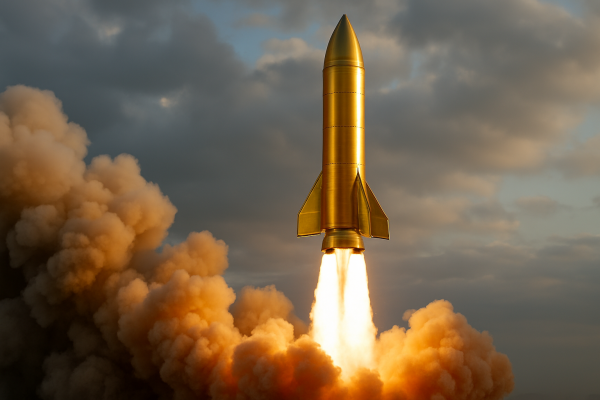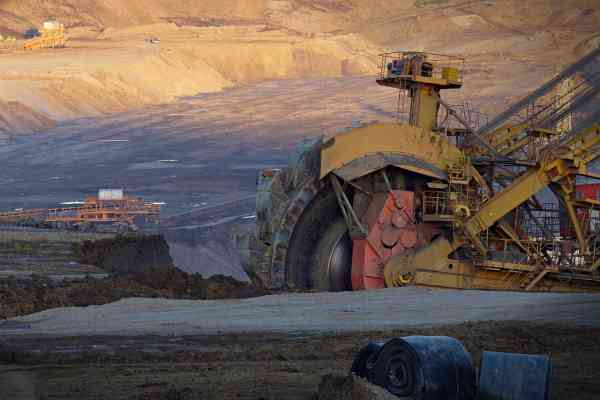October 26th, 2023 | 08:30 CEST
First Phosphate, FREYR Battery, Mercedes Benz - Open road for electromobility
Canada's First Phosphate Corp. has secured USD 170 million in potential financing from the Export-Import Bank of the United States (EXIM) to advance its ambitious plans to create a strategic reserve of purified phosphoric acid in the North American lithium iron phosphate (LFP) battery market. FREYR Battery is also pushing into the US market, moving forward with the merger of its Delaware subsidiary. In Germany, road tolls will be introduced as a CO2 tax starting December 1, 2023. Mercedes-Benz is not fully reimbursing the tolls to its haulers. On the contrary, they have something truly monumental in mind...
time to read: 6 minutes
|
Author:
Juliane Zielonka
ISIN:
FIRST PHOSPHATE CORP | CA33611D1033 , Freyr Battery | LU2360697374 , MERCEDES-BENZ GROUP AG | DE0007100000
Table of contents:

"[...] Boron is one of the most versatile elements in the whole world! Everyone reading this text regularly uses hundreds of products that depend on boron. [...]" Tim Daniels, CEO, Erin Ventures
Author
Juliane Zielonka
Born in Bielefeld, she studied German, English and psychology. The emergence of the Internet in the early '90s led her from university to training in graphic design and marketing communications. After years of agency work in corporate branding, she switched to publishing and learned her editorial craft at Hubert Burda Media.
Tag cloud
Shares cloud
First Phosphate Corp. secures potential USD 170 million financing from EXIM Bank
Things are heating up in the commodities market. Top dog China is set to introduce export licenses for certain graphite products, strengthening its sovereignty over supply chains for critical minerals. Graphite is a key ingredient in electric batteries. So is phosphate. The latter is particularly used in LFP batteries. LFP batteries are mainly used in electric vehicles (EVs) and energy storage systems.
The incorporation of these battery types offers companies some strategic advantages. Iron phosphate-based LFP batteries are less sensitive to heat, providing greater safety in passenger cars, for example. They can be recharged more quickly and have a longer service life. They are also more cost-efficient than other electric batteries.
Battery maker LG Energy Solutions is running LFP batteries from 2026 from the US production line as consumers are more likely to jump on low-cost EVs.
The South Koreans have chosen Arizona as the location to expand their US business. China's current exercise of geopolitical power shows how immensely important unrestricted supply chains are.
First Phosphate is a company specializing in the extraction and purification of phosphate for the production of cathode-active material for the LFP battery industry. The Canadian company has more than 1,500 sq km of land claims in the Saguenay-Lac-St-Jean area of Quebec, Canada, which are royalty-free and actively being developed.
The beauty of First Phosphate is that their strategy involves seamless integration into the supply chains of major North American LFP battery manufacturers who require superior battery-grade LFP cathode active material from a consistent and secure source. That is where LG Energy is just a stone's throw away.
Initial collaborations with industry partners have already been established by First Phosphate, such as an agreement with Utah-based American Battery Factory Inc. to support the annual production of up to 40,000 tons of fully North American-produced LFP cathode active material. Also noteworthy is the USD 170 million expression of interest from the Export-Import Bank of the United States to fund plans to create a strategic reserve of purified phosphoric acid for the North American lithium iron phosphate battery market. For those with ambitious plans, substantial funding is a necessity. To investors, this move highlights First Phosphate's true potential as an investment. This financing is intended to support the acquisition of US products and services in Canada and is repayable over a maximum of 10 years. The LOI is valid until October 14, 2024. So, if you want to focus on seamless supply chains and prefer to invest in the West, take a closer look at First Phosphate.
FREYR Battery moves ahead with plans to rebrand in the US
China's announcement to regulate graphite exports is also being felt by FREYR Battery. Shares are down 5.9% this week. The euphoria for the Norwegian company, which is currently expanding strongly into the US, seems to have sunk among analysts due to the still open question of seamless supply chains.
The Norwegians announced in late September 2023 that it and its subsidiary had signed joint draft terms for a cross-border merger. This merger agreement is the next step in moving to the United States. The merger of the US subsidiary in Delaware with FREYR Battery is expected to be completed in Q4/2023. This will also make the Delaware-based company publicly traded.
Some analysts are swinging from "Buy" to "Moderate Buy," including Goldman Sachs Group, which has downgraded FREYR Battery from "Buy" to "Neutral" and lowered its price target from USD 14 to USD 10. Morgan Stanley has gone a step further, changing its rating on FREYR Battery from "Neutral" to "Overweight," with a price target of USD 13 per share.
In doing so, FREYR Battery has reached a significant production milestone in recent days, where they will be able to produce automated electrodes for batteries from now on. The increased automation is part of their business strategy, which they will fully roll out at the US plant. The automation of the manufacturing process is another step that will enable FREYR to deliver sample cells on time to customers, including Nidec, a Japanese engine manufacturer. However, if one of the valuable raw materials is missing, automation is of no use.
Mercedes-Benz is bringing a CO₂-free monster truck to the roads with LFP batteries
China has been Germany's largest trading partner since 2016, with bilateral trade of nearly EUR 300 billion. China is a key market for some of Germany's largest companies, such as Volkswagen, Mercedes-Benz and BASF. However, it is not just new regulations that are complicating international commodity trade; a new challenge is also rolling in for automakers on domestic roads. But Mercedes-Benz seems well prepared for this.
The German government is introducing extended road tolls on December 1, 2023. A CO₂ surcharge will be added, which will lead to price increases. The toll will also be gradually increased, then levied on transporters weighing 3.5t or more from July 1, 2024, instead of the previous threshold of 7.5t. This could mean the end of many small transport companies, which will no longer be able to afford their business.
The Mercedes-Benz Group will not fully reimburse the increased truck toll to its transport and logistics partners. The toll increase due to the CO₂ tax for a Euro 6 truck in long-haul transport is 15.8 cents. The automaker will cover 8 cents of that, which is just over half.
Instead, the Stuttgart-based company is relying on CO₂-free monster trucks that can cover a distance of 500 km without intermediate charging. If the drivers adhere to the prescribed driving and rest periods, it should be "significantly more than 1,000 km/day" with the new eActros model.
The new eActros model comes with three battery packs on board, each with a capacity of 207 kWh. These lithium iron phosphate (LFP) cells are designed to be used for an average of 10 years of operation and a mileage of 1.2 million km. The batteries, when the eActros is equipped with this add-on option, can be recharged from 20% to 80% in under 30 minutes.
In recent weeks, industry companies have repeatedly stressed that due to the current economic situation and the increased costs, there is no possibility to absorb the incurred toll fees. The additional costs must be passed on in full to customers, including the unavoidable kilometers, as has also been unanimously stated by industry associations.
The CO₂ toll costs will largely be passed on to end consumers, ultimately leading to an increase in inflation for all of us. The Mercedes-Benz Group is also keeping its money tight, so the industry should dress even warmer for the coming winter. Emission-free trucks, however, are exempt from tolls until 2025. Mercedes-Benz seems to have foresworn that. The fact that they are using LFP batteries illustrates their Swabian talent for cost efficiency. And who knows, maybe they, too, will become First Phosphate customers in the future.
First Phosphate Corp. secures letter of interest for USD 170 million from EXIM Bank to launch its ambitious plans to strengthen North America's LFP battery supply chains. FREYR Battery continues to progress in its relocation to the US while achieving a milestone in automating its battery production. Mercedes-Benz responds to increased tolls with CO₂-free trucks based on LFP batteries and shows cost awareness. The importance of LFP batteries in the industry is becoming increasingly apparent, allowing investors to make informed decisions about which companies in the supply chain they invest in or adjust their positions.
Conflict of interest
Pursuant to §85 of the German Securities Trading Act (WpHG), we point out that Apaton Finance GmbH as well as partners, authors or employees of Apaton Finance GmbH (hereinafter referred to as "Relevant Persons") may hold shares or other financial instruments of the aforementioned companies in the future or may bet on rising or falling prices and thus a conflict of interest may arise in the future. The Relevant Persons reserve the right to buy or sell shares or other financial instruments of the Company at any time (hereinafter each a "Transaction"). Transactions may, under certain circumstances, influence the respective price of the shares or other financial instruments of the Company.
In addition, Apaton Finance GmbH is active in the context of the preparation and publication of the reporting in paid contractual relationships.
For this reason, there is a concrete conflict of interest.
The above information on existing conflicts of interest applies to all types and forms of publication used by Apaton Finance GmbH for publications on companies.
Risk notice
Apaton Finance GmbH offers editors, agencies and companies the opportunity to publish commentaries, interviews, summaries, news and the like on news.financial. These contents are exclusively for the information of the readers and do not represent any call to action or recommendations, neither explicitly nor implicitly they are to be understood as an assurance of possible price developments. The contents do not replace individual expert investment advice and do not constitute an offer to sell the discussed share(s) or other financial instruments, nor an invitation to buy or sell such.
The content is expressly not a financial analysis, but a journalistic or advertising text. Readers or users who make investment decisions or carry out transactions on the basis of the information provided here do so entirely at their own risk. No contractual relationship is established between Apaton Finance GmbH and its readers or the users of its offers, as our information only refers to the company and not to the investment decision of the reader or user.
The acquisition of financial instruments involves high risks, which can lead to the total loss of the invested capital. The information published by Apaton Finance GmbH and its authors is based on careful research. Nevertheless, no liability is assumed for financial losses or a content-related guarantee for the topicality, correctness, appropriateness and completeness of the content provided here. Please also note our Terms of use.




